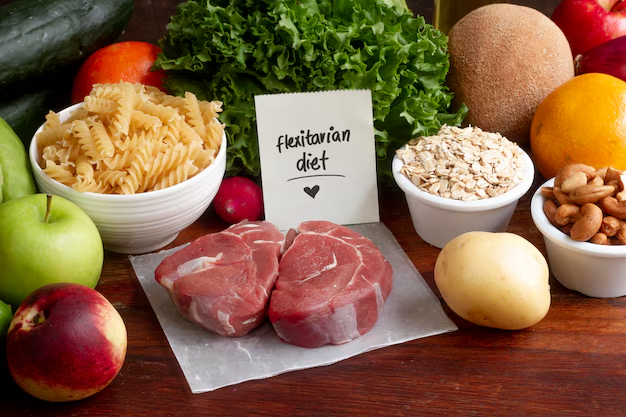
When it comes to maintaining good health, one of the most powerful tools at our disposal is the food we eat. A balanced, nutritious diet can prevent chronic diseases, boost energy levels, and improve mental clarity. However, with so much conflicting information about diets, it can be challenging to know what’s truly healthy. This comprehensive guide will provide you with the fundamentals of healthy eating, offering actionable advice on what to include in your daily meals for better overall health.
1. The Building Blocks of a Healthy Diet
A healthy diet is one that incorporates a variety of nutrient-rich foods in the right proportions. These foods fall into several categories, each contributing specific benefits to your body:
- Fruits and Vegetables: These are the cornerstone of any healthy diet. Rich in vitamins, minerals, antioxidants, and fiber, fruits and vegetables support immune function, improve digestion, and help maintain healthy skin. Aim for a colorful plate, as different colors represent different nutrients.
- Whole Grains: Whole grains like quinoa, brown rice, oats, and whole wheat are packed with fiber, B vitamins, and important minerals. They aid in digestion, keep blood sugar levels stable, and provide long-lasting energy.
- Lean Proteins: Proteins are essential for muscle growth, repair, and the production of enzymes and hormones. Good sources of lean protein include chicken, turkey, tofu, lentils, beans, and fish. Including these in your diet will help you feel satisfied and support overall bodily functions.
- Healthy Fats: Contrary to popular belief, fats are a necessary component of a balanced diet. Healthy fats found in nuts, seeds, avocados, and fatty fish like salmon and mackerel promote heart health, support brain function, and help the body absorb fat-soluble vitamins.
- Dairy or Dairy Alternatives: Dairy products such as milk, yogurt, and cheese are rich in calcium and vitamin D, important for bone health. For those who are lactose intolerant or vegan, fortified plant-based alternatives like almond milk or soy yogurt are great options.
2. The Importance of Portion Control
Even healthy foods can contribute to weight gain if consumed in excessive amounts. Portion control is essential for managing your calorie intake while ensuring you’re getting the right balance of nutrients. Here are some tips to practice mindful portion control:
- Use smaller plates: This helps trick your brain into feeling satisfied with less food.
- Avoid eating straight from the package: This can lead to overeating without realizing it.
- Listen to your body: Eat when you’re hungry, and stop when you’re full, rather than continuing out of habit or boredom.
3. The Role of Hydration in a Healthy Diet
While food plays a central role in health, hydration is just as critical. Water supports digestion, regulates body temperature, and flushes toxins from the body. Aim to drink at least eight 8-ounce glasses of water a day, more if you’re physically active. Herbal teas, coconut water, and water-rich fruits like watermelon can also help you stay hydrated.
4. Incorporating Healthy Foods into Your Daily Routine
Making healthy food choices can be challenging in a fast-paced world filled with convenience foods. However, small changes can make a big difference. Here are some simple ways to incorporate healthy foods into your daily routine:
- Breakfast: Start your day with a nutrient-dense breakfast that includes whole grains, protein, and healthy fats. Try oatmeal topped with fruit, nuts, and seeds, or scrambled eggs with vegetables on whole-grain toast.
- Lunch: Make your lunch a balanced meal by combining lean proteins, healthy fats, and plenty of vegetables. A salad with grilled chicken, avocado, and a variety of colorful veggies is an excellent option.
- Snacks: Healthy snacks like mixed nuts, hummus with veggies, or fruit with a small amount of nut butter can keep your energy levels stable between meals and prevent overeating later on.
- Dinner: Focus on a well-rounded dinner that includes a serving of lean protein, whole grains, and vegetables. Grilled salmon with quinoa and steamed broccoli is a great example of a healthy, satisfying dinner.
5. Healthy Eating Habits Beyond Food Choices
Healthy eating isn’t just about what’s on your plate. It’s also about how you approach food. Here are a few habits that can support your journey toward better health:
- Eat Mindfully: Take time to savor your meals, paying attention to the flavors and textures. Eating slowly can help you enjoy your food more and prevent overeating.
- Plan Your Meals: Meal planning can save you time and money while ensuring you make healthier food choices. Take some time each week to plan your meals and snacks in advance, and prepare them ahead of time when possible.
- Limit Processed Foods: Highly processed foods are often high in sugar, unhealthy fats, and sodium. Limiting these foods can reduce your risk of developing chronic health issues like heart disease and type 2 diabetes.
6. The Benefits of Eating for Better Health
Eating a balanced, nutrient-dense diet comes with numerous benefits, including:
- Increased Energy: When you fuel your body with the right nutrients, you’ll experience sustained energy levels throughout the day.
- Weight Management: A healthy diet supports weight loss and weight maintenance by providing essential nutrients while preventing overeating.
- Improved Mental Health: Nutrient-dense foods, particularly those rich in omega-3 fatty acids and antioxidants, have been linked to improved mood, cognitive function, and a reduced risk of depression.
- Stronger Immune System: A diet rich in fruits, vegetables, and whole grains provides the vitamins and minerals needed to boost your immune defenses.
- Better Skin and Hair: Nutrient-rich foods can help keep your skin glowing and your hair strong by providing the right vitamins and minerals.
7. The Bottom Line
Eating for better health doesn’t have to be complicated. By focusing on whole, nutrient-dense foods and developing mindful eating habits, you can nourish your body and achieve long-term wellness. Remember, balance is key, and it’s about making consistent, sustainable changes rather than following extreme diets. So start small, prioritize nutrient-rich foods, and enjoy the many benefits that come from nourishing your body with wholesome, healthy food.
The journey to better health begins with the food you choose to put on your plate. By following these guidelines, you’re taking the first step toward a healthier, more vibrant life!












